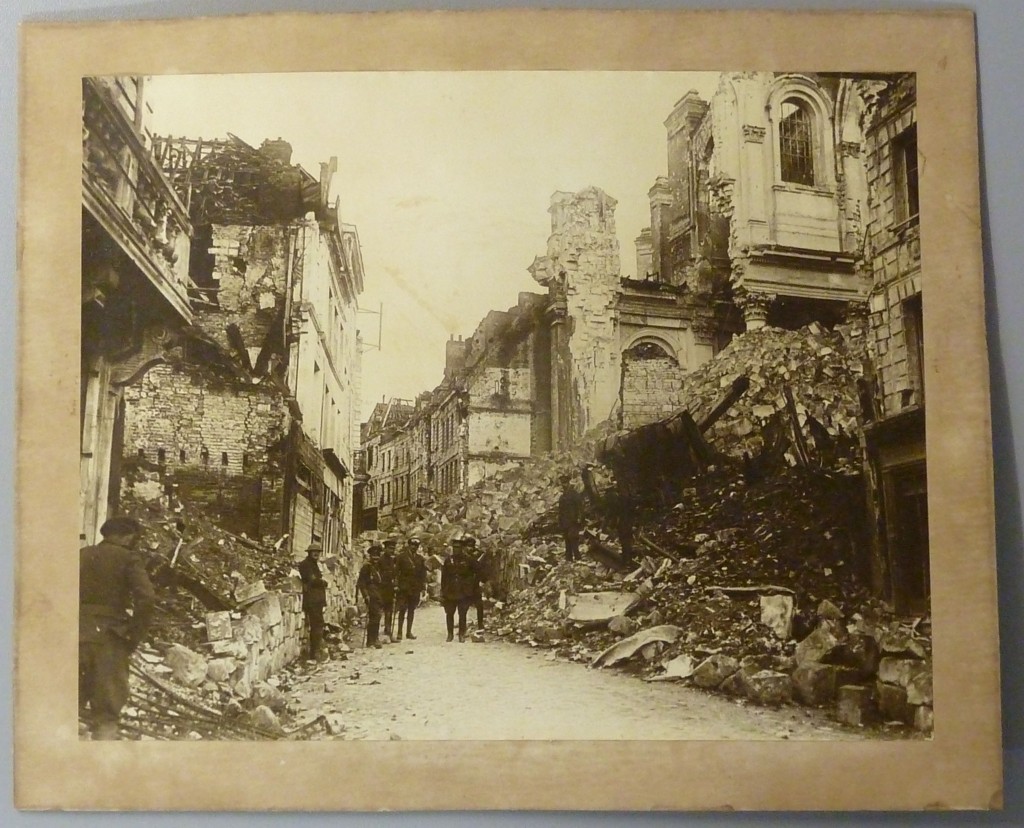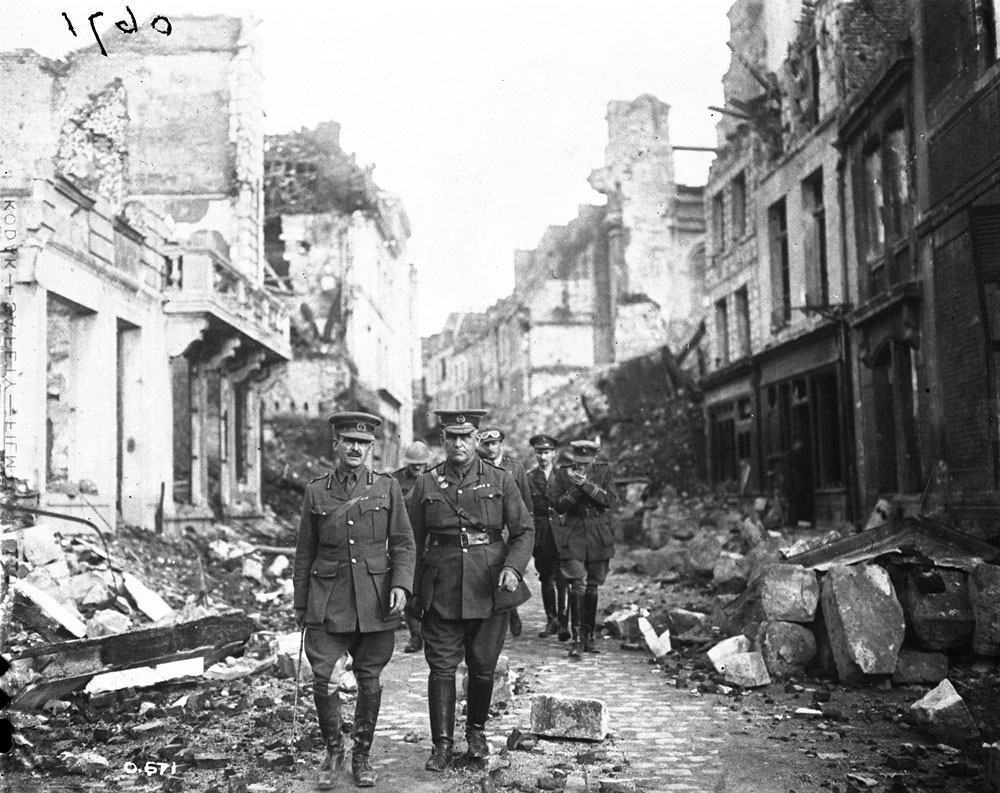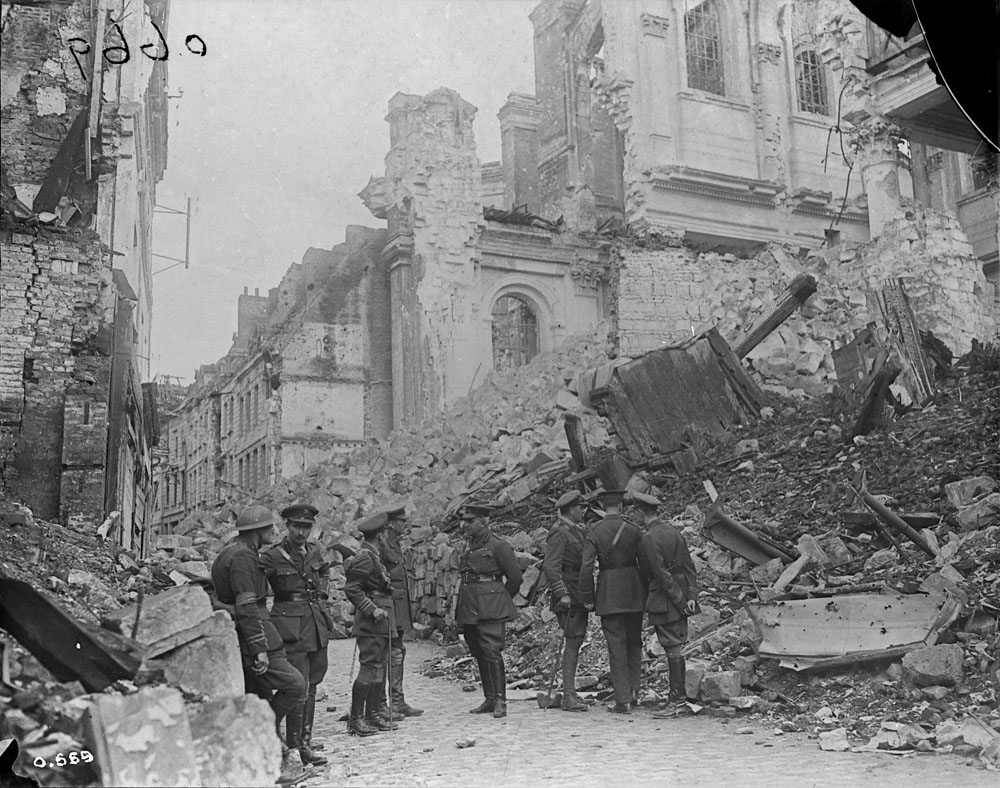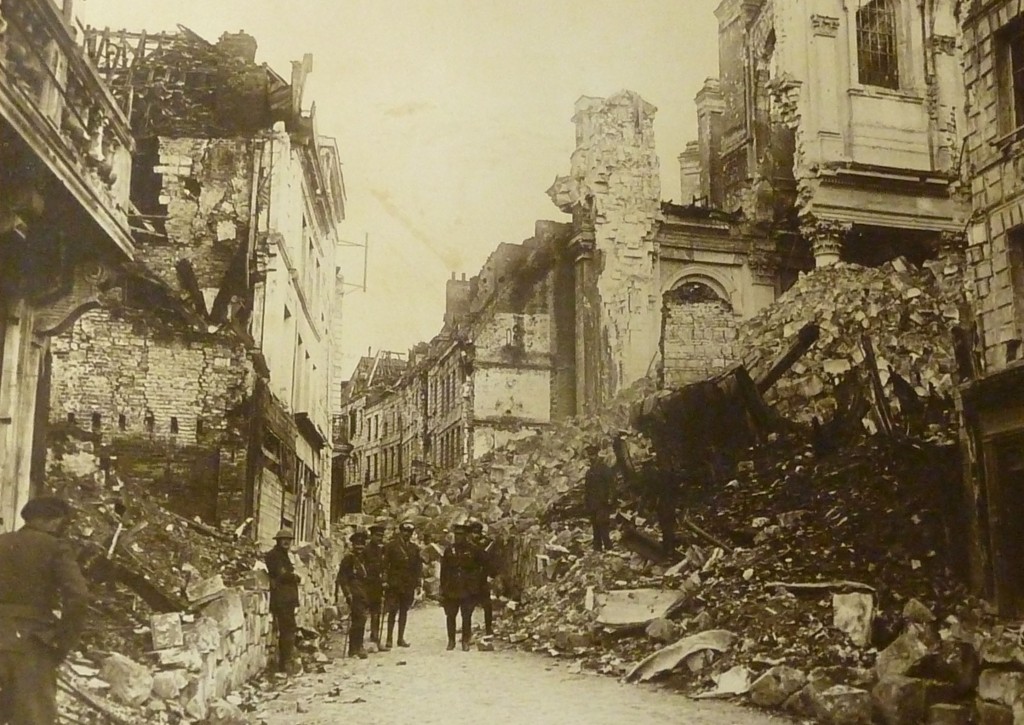In 2010, an intriguing photograph from the First World War was discovered in the collection at Trinity House, Leith. Used to back an engraving of South Leith Parish Church, it had remained hidden until it was revealed by our paper conservator who was remounting the picture.
Determined to find out more, Hugh Morrison, Collections Registrar, enlisted the help of in Thomas Morel, who was on a work placement at Historic Environment Scotland from the Institut National du Patrimoine, Paris.
The French connection
On seeing the photograph for the first time, whilst working with our Collections team, his attention was captured by the distinctive ruins depicted on the right hand side of the street. Using his knowledge of French buildings and online photographic archives it wasn’t long before Thomas was able to match them precisely to photographs showing the remains of Arras Cathedral after it had been heavy shelled in April 1917.
A few weeks later the photograph was passed on to me, a graduate trainee working with the designations team, as I have been carrying out research and writing articles for the Scotland’s First World War website. I was asked if I would be interested in doing a piece on Thomas’s discovery.

The mystery photograph found hidden behind a painting of South Leith Parish Church © Historic Environment Scotland
A spectacled man
I started researching the situation in Arras at this time. After looking through several different websites and other resources I came across a photograph depicting a group of soldiers amongst the rubble on the same street, Rue Méaulens.
I spent a little time examining the buildings in the image when something caught my eye: one of the men was wearing a very distinct pair of glasses on his cap, glasses that I had seen somewhere before. I quickly brought up a copy of our mystery photograph. Could they be the same glasses on the very same man? Could this possibly even be the same group of officers?

The second image depicting the same officers on Rue Méaulens: note the distinct glasses on the officer in the background © Canada. Dept. of National Defence/Library and Archives Canada
I analysed each photograph carefully: both images depicted 6 men in military attire, one dressed in one type of uniform, and the sixth in another. On closer inspection, more similarities began to appear: the same moustaches, physical stances, shoes, canes and hats.
I was certain these were the same group of men.
The Canadian link led me to the collections of the Library and Archives Canada website, where further digging revealed numerous photographs of General Sir Sam Hughes’ visit to Arras. Amongst these images I found a copy of the mystery photograph, confirming my suspicions.

The same group of Canadian officers inspecting the rubble on Rue Méaulens © Canada. Dept. of National Defence/Library and Archives Canada
So who were they?
The photograph depicts a group of Canadian officers including the Canadian Minister of Militia, Lieutenant General Sir Sam Hughes as well as his brother Brigadier General William St. Pierre Hughes who commanded the 10th Canadian Infantry Brigade. It was taken in August 1916 by British born Lieutenant William Ivor Castle, Canada’s official war photographer between August 1916 and June 1917. Although he was gassed on the Somme a few months later, he survived and returned to London where he exhibited his work to boost public morale, and was awarded an MBE for his efforts.
The mystery remains
Although between us Thomas and I have identified the location, date, photographer and individuals depicted, one question still remains: what was a photograph of Canadian officers on the ruined streets of Arras doing hidden behind a painting of South Leith Parish Church?
What do you think?

